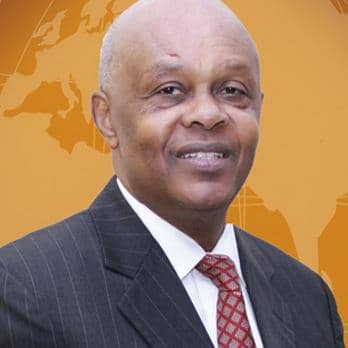THE passing of a person has never been any thrilling news, particularly in our African ways of life.
When the news broke that Prof. Deliphinus Rwegasira is no more, like many economists, I was disheartened.
Firstly, because it is never good news whenever it is the death notice. Secondly, because the good professor was the “maestro” in the economics profession on this part of the world.
The consoling part of this sad news, however, is that the economics profession is itself incomplete without the longterm aspects of human auction. Hence, John Keynes’s wisdom- “In the long run, we are all dead.”
I know not the personal life of Professor Rwegasira, but at least, I know a thing or two in his intellectual orientation; the orientation anchored in the beauty and truth of the economics profession.
The truth of economics is in moral philosophy that economists ought to call “beautiful.” The economic theory grounded in both social and political philosophy is beautiful and true.
Understanding the beauty and truth of economics entails curiosity and compassion – the classical features of influential economists.
Prof. Delphinus Rwegasira appreciated the economics discipline as a tool for the curious and the compassionate.
In the breadth and depth of economics teaching, his approach was a complex coordination, reflecting truth, beauty, hope, and compassion. This was felt by all his students in and out of classroom.
Contrary to what economics has become – “a science capable of prediction and control rather than a philosophical understanding,” his analyses always took us back to the original position – economics as a branch of moral and social philosophy, economics in its true purpose, the beauty and truth of economics.
Of course, from Adam Smith to J.S. Mill, economics was a branch of moral philosophy before its current transformation that took shape towards the end of 19th century.
Today, perhaps more than never before, most professional and academic economists consider economics as a science on par with the natural sciences in terms of what it is supposed to deliver.
But that makes economics a dry- technical subject short of expansive intellectual underpinnings of moral philosophy-economics as a function of human action, as Ludwing von Mises would put it.
At Nyerere’s Intellectual Festival (Kigoda Cha Mwalimu), Prof Rwegasira’s intellectual exposition exhibited why economics is all about human action. Above all, he was brilliant, radiant, and effervescent with vivid exhilarating imagination.
To draw the parallels, one has to go back to Frederic Bastiat economic exposition.
In these days of ours in which economists have invented the art of ” torturing” the data long enough by means of quantitative methods to make it confess, Prof Rwegasira would be a point of reimagination that quantitative methods, cannot independently ascertain the essence of economic activity.
And, thus;
I weep not.
I wail not.
I celebrate his intellectual life.
Fare thee well, Prof Rwegasira. The truth and beauty of economics will always remember you.










